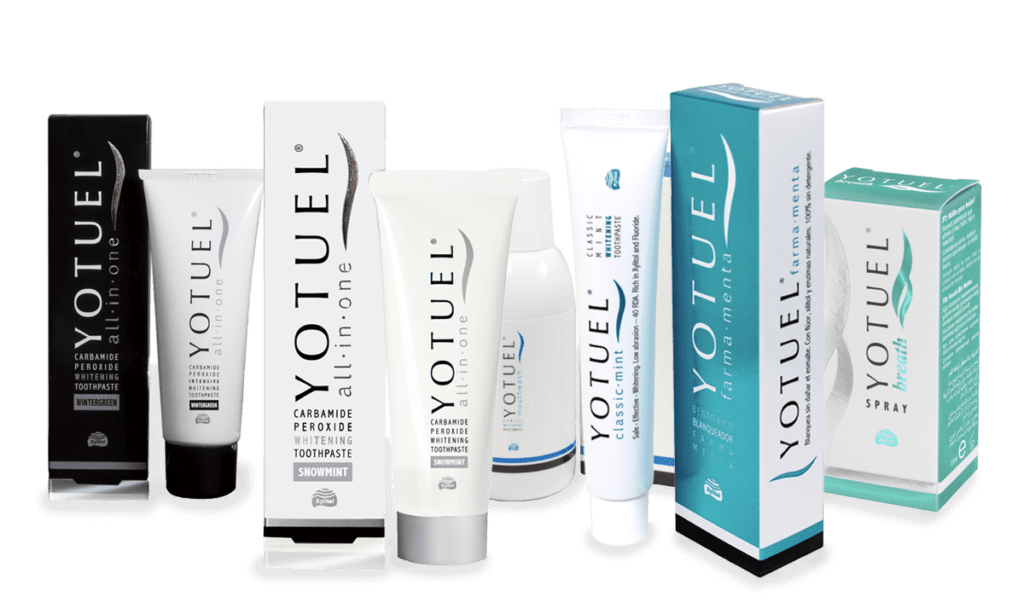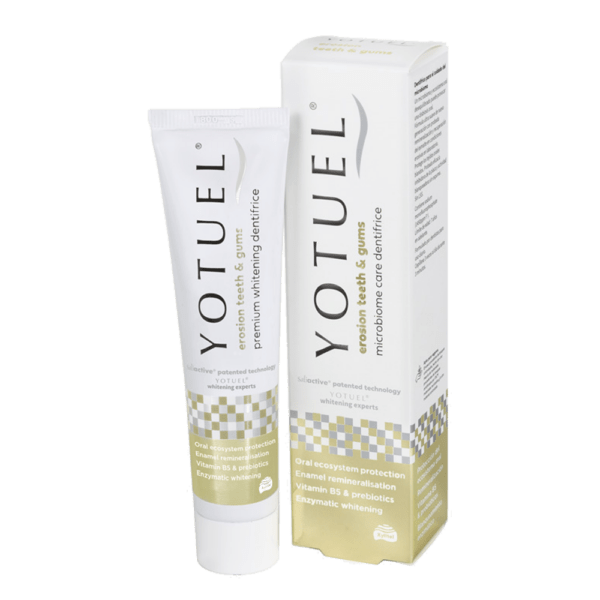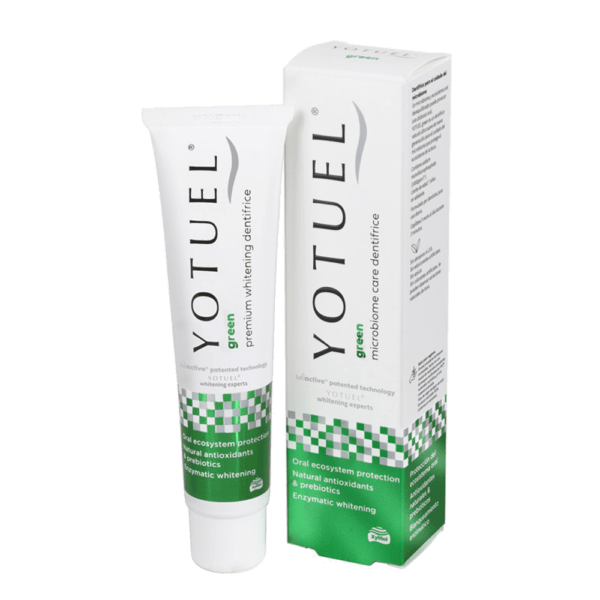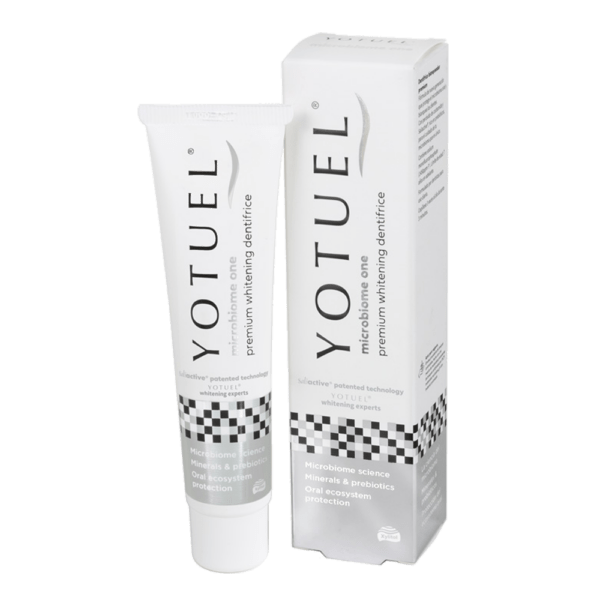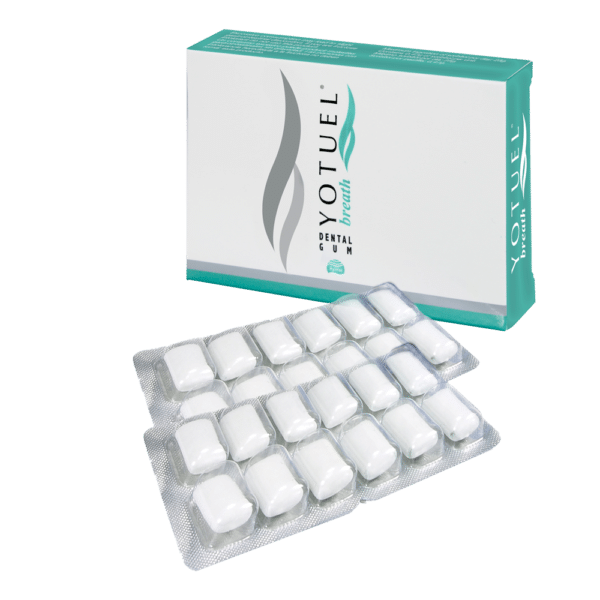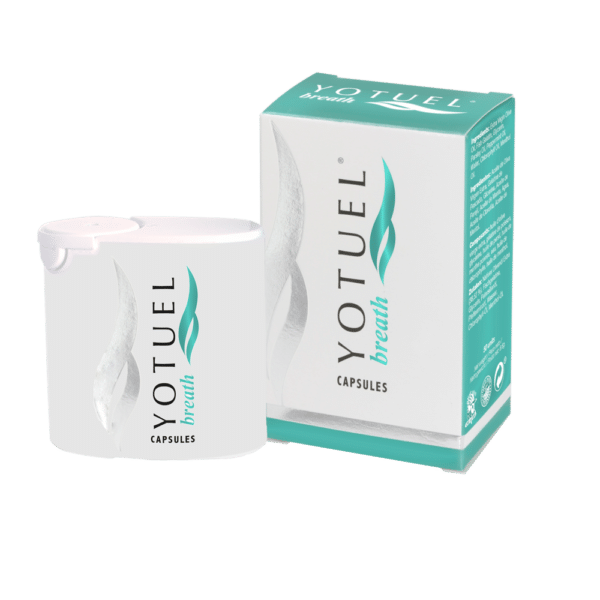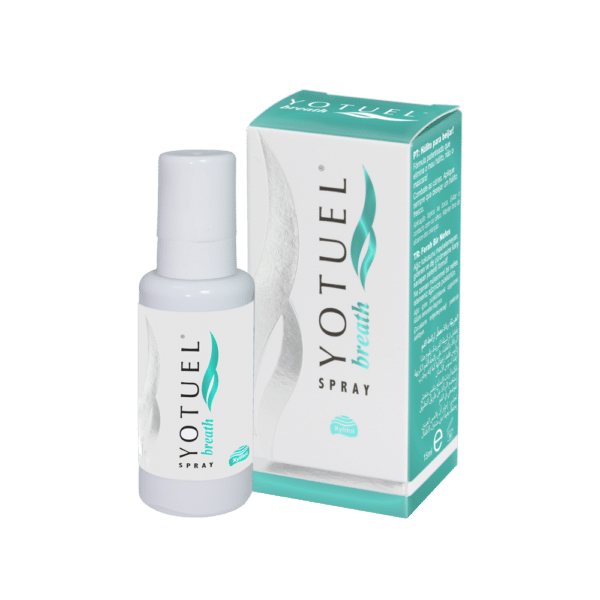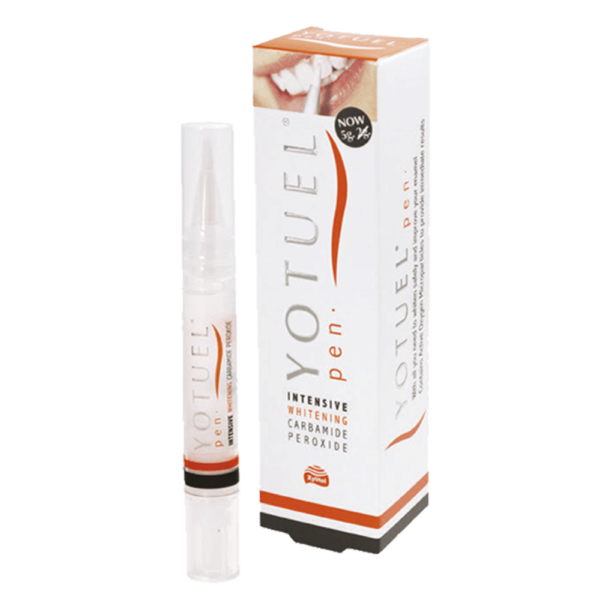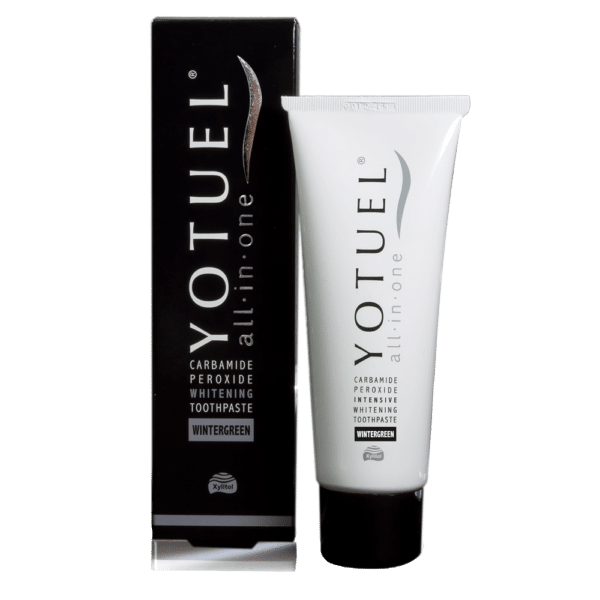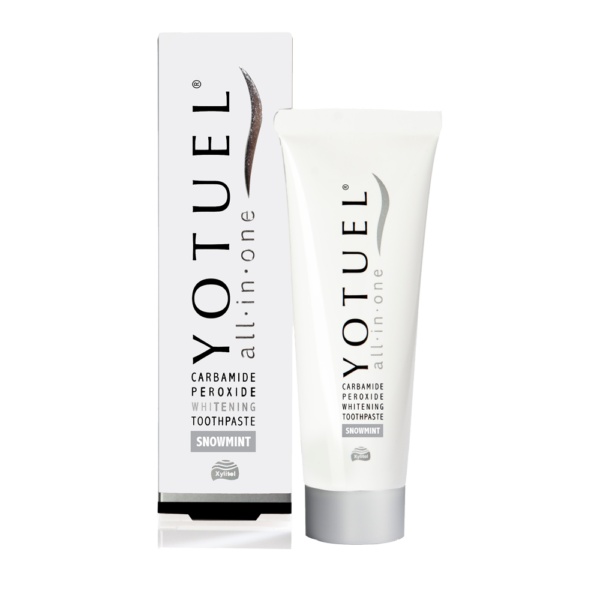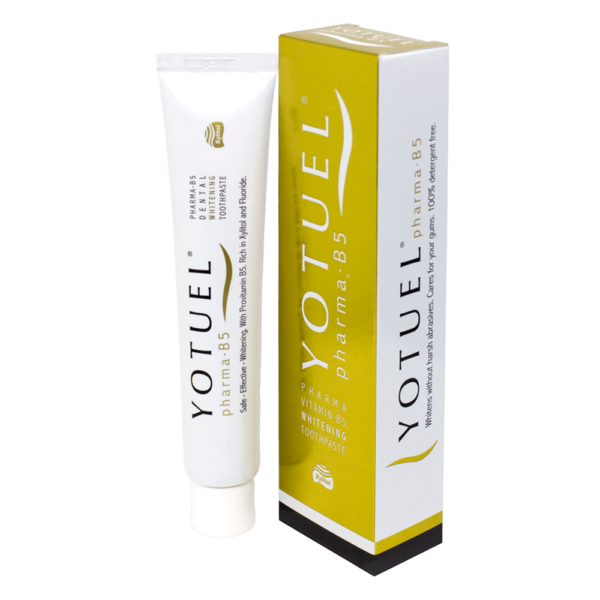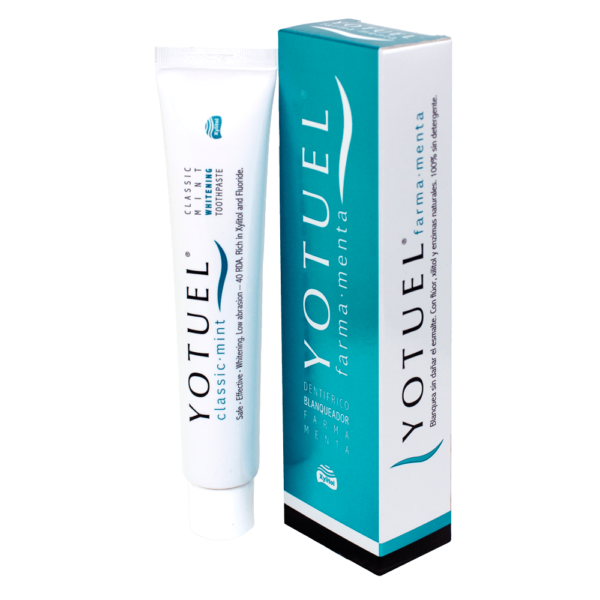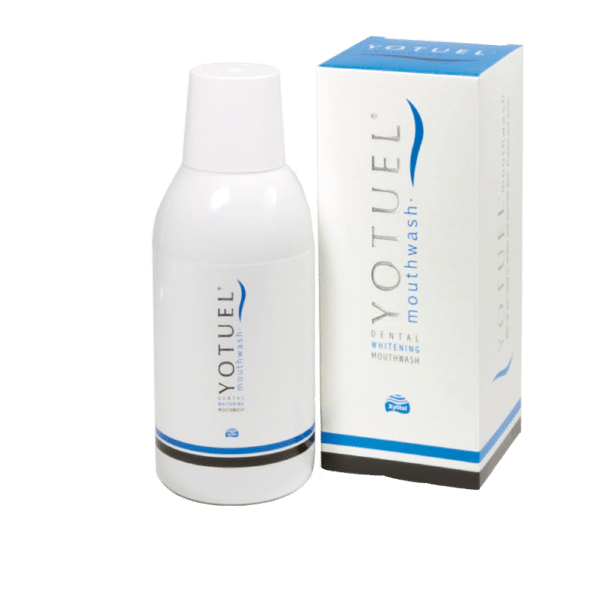Although you don’t always see it, plaque is there. It forms daily on your teeth and gums, and if you don’t remove it in time, it can become a serious threat to your oral health.
At YOTUEL, we believe the best defence is knowledge. So today we explain what it is, how it forms, and, above all, how you can remove it without compromising your smile.
What is plaque?
Plaque is a colourless, sticky, and soft film that accumulates on the surface of your teeth and along the gum line. It is made up of:
- Bacteria (some good, but many harmful)
- Food debris
- Saliva
This biofilm constantly forms and doesn’t stop, not even while you sleep. If not removed properly, it hardens and turns into tartar, a much more difficult substance to remove, which can only be removed by a professional.
Why should you remove plaque?
Because it’s not just a cosmetic issue. Allowing it to build up can lead to serious oral health problems:
- Tooth decay: The bacteria in plaque convert the sugars you consume into acids that attack the enamel, weakening tooth structure and causing cavities.
- Gingivitis: This is the inflammation of the gums caused by plaque. The gums become red, bleed easily, and, if left untreated, can progress.
- Periodontitis: A more serious form of gingivitis. Plaque penetrates below the gum line, destroying tissue and bone. The consequence? Possible tooth loss.
How to know if you have plaque
Some signs that may indicate plaque buildup are:
- A feeling of “rough” teeth when you brush your tongue
- Swollen or bleeding gums when brushing.
- Persistent bad breath.
- Tooth stains (in more advanced stages).
How to Eliminate and Prevent Plaque
The good news: plaque is reversible and preventable. You just need consistency and quality products. Here are some essential recommendations:
- Brush at least twice a day: But not just any brush: use a soft-bristled toothbrush and a suitable toothpaste, such as YOTUEL toothpastes, which clean thoroughly without damaging enamel or altering your oral microbiome.
- Floss daily: A toothbrush can’t reach everywhere. Flossing removes plaque that hides between teeth, where cavities often begin.
- Use a good mouthwash: Not all mouthwashes are created equal. YOTUEL mouthwash fights plaque without alcohol, biocides, or detergents, making it ideal for gentle yet effective daily use. It also protects gums and provides fresh breath with its minty flavor.
- Take care of your diet: Reduce refined sugars and choose foods that stimulate saliva production, such as crunchy fruits and vegetables. Remember: saliva is a natural defense against plaque.
- Visit the dentist regularly: A professional cleaning every 6 months is key to removing tartar and detecting any warning signs early.
What role does YOTUEL play in controlling plaque?
YOTUEL products are designed to care for your smile from the inside out. Our oral hygiene range combats plaque buildup by respecting your oral microbiome, avoiding harsh ingredients, and opting for quality formulas with real benefits:
- YOTUEL Mouthwash: fights tartar and plaque without drying out your mouth.
- YOTUEL Whitening and YOTUEL Microbiome Toothpastes: clean effectively, whiten without damaging, and protect teeth and gums.
Frequently asked questions about plaque
Does plaque disappear on its own?
No. It can only be removed with a proper oral hygiene routine. If it hardens and turns into tartar, you will need a professional cleaning.
Is plaque the same as tartar?
No. Plaque is soft and can be removed at home. Tartar is calcified plaque and can only be removed by a dentist.
Can I still have plaque even if I brush every day?
Yes, if you don’t brush properly, skip flossing, or use harsh products that disrupt your oral microbiome.
Does plaque cause bad breath?
Yes. The bacteria that form plaque produce volatile sulphur compounds (VSCs) that cause bad breath, especially when you don’t clean your tongue properly or plaque builds up in hard-to-reach areas.
How long does it take for plaque to form?
Plaque begins to form immediately after brushing. Therefore, it’s important to maintain consistent oral hygiene and not skip daily cleanings.
Are white teeth free of plaque?
Not necessarily. A tooth can appear white but have plaque buildup, especially near the gums or between teeth. Aesthetics don’t always reflect actual oral health.
Can I have plaque even if I don’t have cavities?
Yes. Plaque can be present without a cavity having formed yet. However, if it accumulates, it can lead to cavities over time.
As we can see, plaque may seem harmless at first, but if you don’t keep it under control, it can compromise your oral health in the long run. At YOTUEL, we’re committed to smart hygiene: it’s not about eliminating everything, but rather respecting your mouth’s natural balance while combating what’s really harming you.
Take care of your smile with products that care for you. Discover more tips and solutions on our Healthy Smiles blog.



